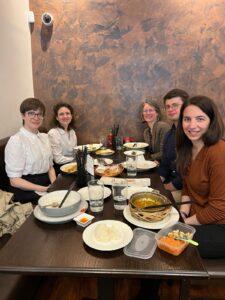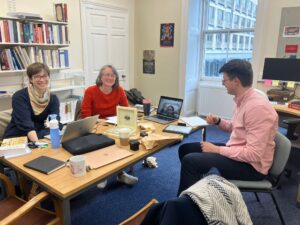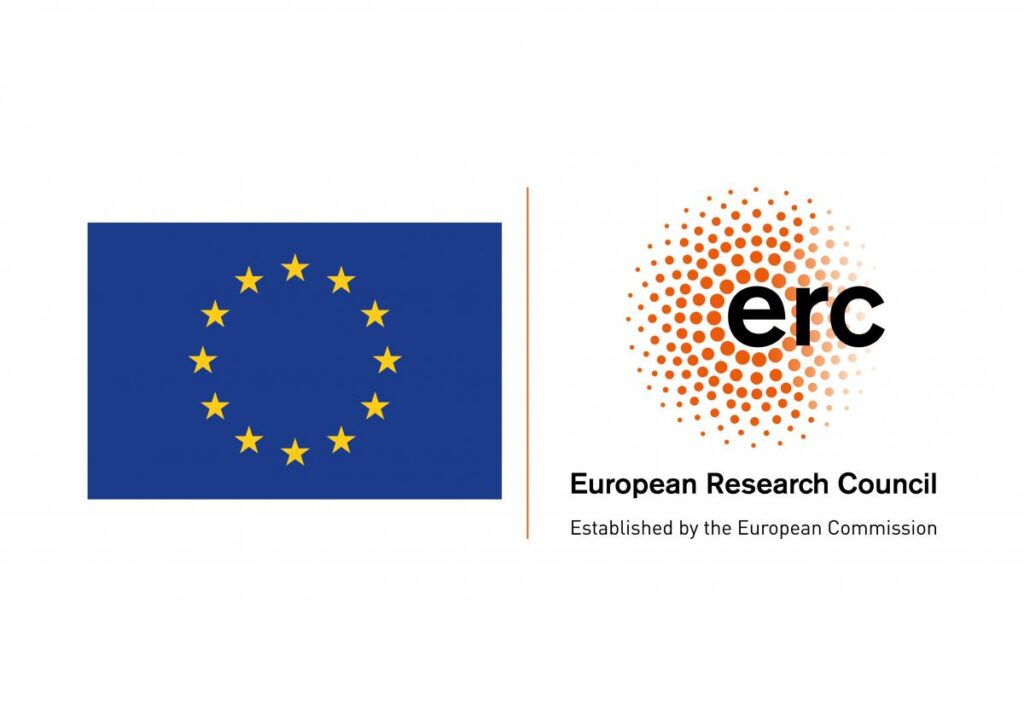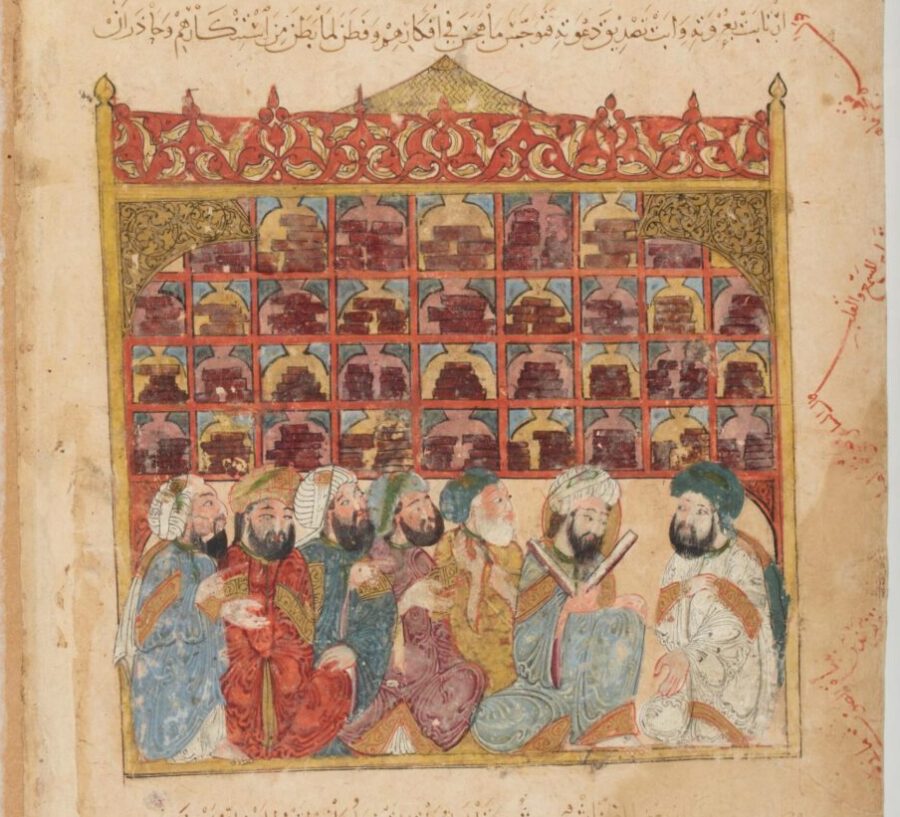From May 26 to 28, the Caliphal Finances team had the pleasure of hosting Cecilia Palombo, Assistant Professor of Early Islamic History at the University of Chicago.
On Monday, May 27, the team gathered in person at Marie Legendre’s office. The meeting included postdocs Eline Scheerlinck and Noëmie Lucas, as well as Georgi Obatnin, an SGSAH PhD student associated with the project. Dalia Hussein, a PhD student funded by the project, participated online throughout the workshop.
In the morning, we introduced Cecilia to the rationale behind the ERC Caliphal Finances project, with each team member presenting their work packages and tasks. We then discussed a draft paper by our PI, Marie Legendre, on the integration of the Abbasid Empire. The discussion focused on the dynamics of ‘centralization’ and the appropriate scale for studying them. We delved into the transfer of Egyptian revenues during the Abbasid period, examining its functioning and efficiency—a theme central to Noëmie Lucas’s work package. This stimulating discussion continued over lunch.

Team’s lunch – Monday 27 May
Before Cecilia’s visit, we read several of her publications, including her PhD dissertation and forthcoming papers that she kindly shared with us. On Monday afternoon, Cecilia updated us on her current research and elaborated on her book project derived from her PhD dissertation. She previewed its content and discussed her reflections on papyrological documentation and their archival journey in her historical work.
Eline Scheerlinck inquired about the dating of documents, a key aspect of her work package. We also explored whether our research could provide a comprehensive view of the entire fiscal system or only local perspectives. The integration of Arabic documents with Greek and Coptic ones to understand the fiscal system was a focal point of the afternoon’s discussions.
In the course of the afternoon, Cecilia mentioned the rich collection of documents and artifacts held at the Institute for the Study of Ancient Cultures (ISAC) Museum at the University of Chicago. Among these are stones from the Moritz Collection, which might be of interest to us!
The following morning, we continued discussing Cecilia’s work, particularly the fiscal aspects of her PhD research. The latter half of the morning was dedicated to the provenance of documents, a crucial issue for the team’s members of the project.
After lunch, Georgi Obatnin shared insights from his ongoing PhD research on coins and monetary systems. We examined the use and representation of money in documents, the concept of money of account, and the chronological changes during the eighth and ninth centuries. In the afternoon, we focused on Noëmie Lucas’s work, discussing a chapter from her forthcoming book on negotiation and taxation in Iraq at the end of the eighth century. This allowed us to draw comparisons between Egypt and the broader empire, aligning with the goals of the Caliphal Finances project.

Part of the Caliphal Finances team – Tuesday 28 May (credit Cecilia Palombo)
The workshop was an invaluable opportunity for deepening our understanding of early Islamic fiscal systems and fostering collaboration among scholars. The diverse perspectives and expertise brought by Cecilia Palombo and the team members enriched our discussions and provided fresh insights into our ongoing research. We look forward to future collaborations and continuing the fruitful exchanges that began during these productive days.
Banner image: Ḥarīrī, A. & Wāsiṭī, Y. I. M. (1236) The Assemblies of al-Hariri. [Place of Publication Not Identified: Publisher Not Identified, to 1237] Retrieved from the Library of Congress, https://www.loc.gov/item/2021667393/.




Leave a Reply